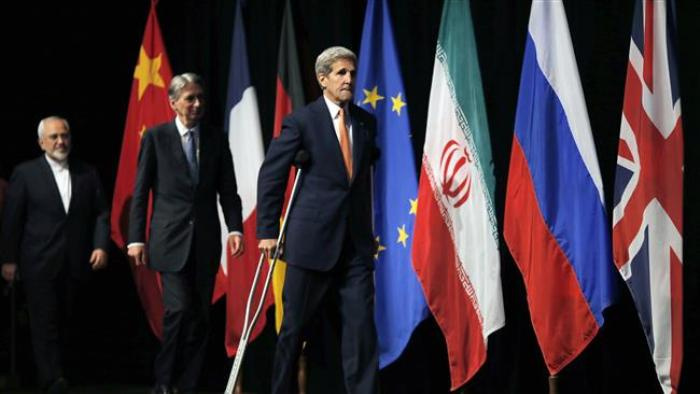What We Achieved Through JCPOA

(Photo: Presstv.ir)
By: Hassan Beheshtipour
Looking at the Joint Comprehensive Plan of Action (JCPOA) beyond the text and its details, it appears to me as an unambiguous turning point for Iran, the Middle East and the international community. It is a historic agreement from every aspect. After thirty-years of struggle, Tehran and Washington managed to agree upon a single text without withdrawing from their principal red lines.
There is a saying that "a good diplomat is not one that does not act upon what he says, but one that acts upon what does not say." What should be taken into consideration is not what Foreign Minister Javad Zarif or US Secretary of State John Kerry say, but the focus should be on what is left unsaid, its tangible results.
In the JCPOA, we have achieved a model that has averted another war. Some observers claim that all those US muscle-flexings have been hollow threats and the superpower avoids another war. But history is there for teaching us lessons. Similar arguments were made before the war against Iraq.
No red lines were passed in the JCPOA. What Iranian officials always insisted on was full control over the nuclear fuel cycle including uranium enrichment. The red lines set by Supreme Leader Ayatollah Ali Khamenei significantly aided the Iranian team during the bargaining. Some expectations, such as simultaneous removal of sanctions may not have been realistic. Sanctions, as the most powerful tool in the hand of the enemy would be laid off only if Iran agreed to restrictions and supervisions over its nuclear program.
The JCPOA has also reduced security threats against Iran. Despite claims inside the country that national security has been exposed to further threats following the nuclear deal, I believe the opposite is true. For several years before the deal, Iran's dossier was examined under articles 40 and 41 of Chapter VII of the United Nations Charter (Article 41: "The Security Council may decide what measures not involving the use of armed force are to be employed to give effect to its decisions, and it may call upon the Members of the United Nations to apply such measures. These may include complete or partial interruption of economic relations and of rail, sea, air, postal, telegraphic, radio, and other means of communication, and the severance of diplomatic relations.")
While there is a global consensus that the JCPOA was a diplomatic victory in Iran, inside the country some groups regard it as a deception, or even worse, treason. Couldn't we come to a collective conclusion if the JCPOA is a success or a serious mistake without falling victim to partisan politics?
Under Ayatollah Khamenei's direction, Iran managed to invalidate excuses by the West, i.e. that it is seeking a nuclear bomb. President Rouhani moved towards this goal, while explicitly acknowledging the unfair mechanism dominating the international relations. Rouhani seems to have succeeded in achieving this goal. True it is that restrictions have been set on Iran's nuclear program, but that is indeed better than a direct confrontation with Washington.
* This piece was originally published in the Reformist newspaper Roozan.

